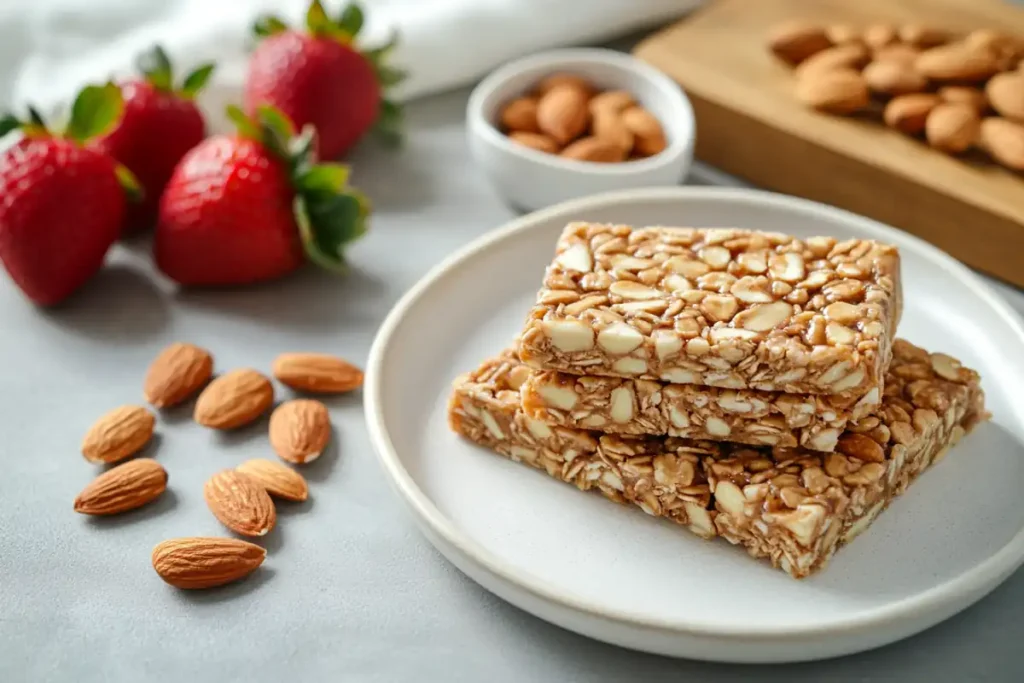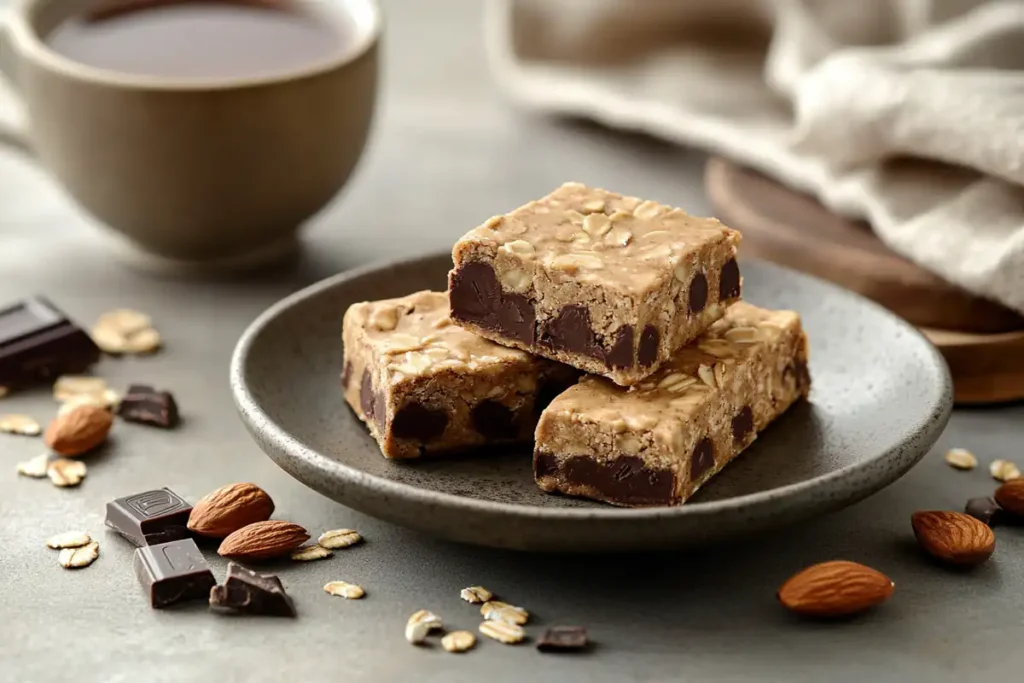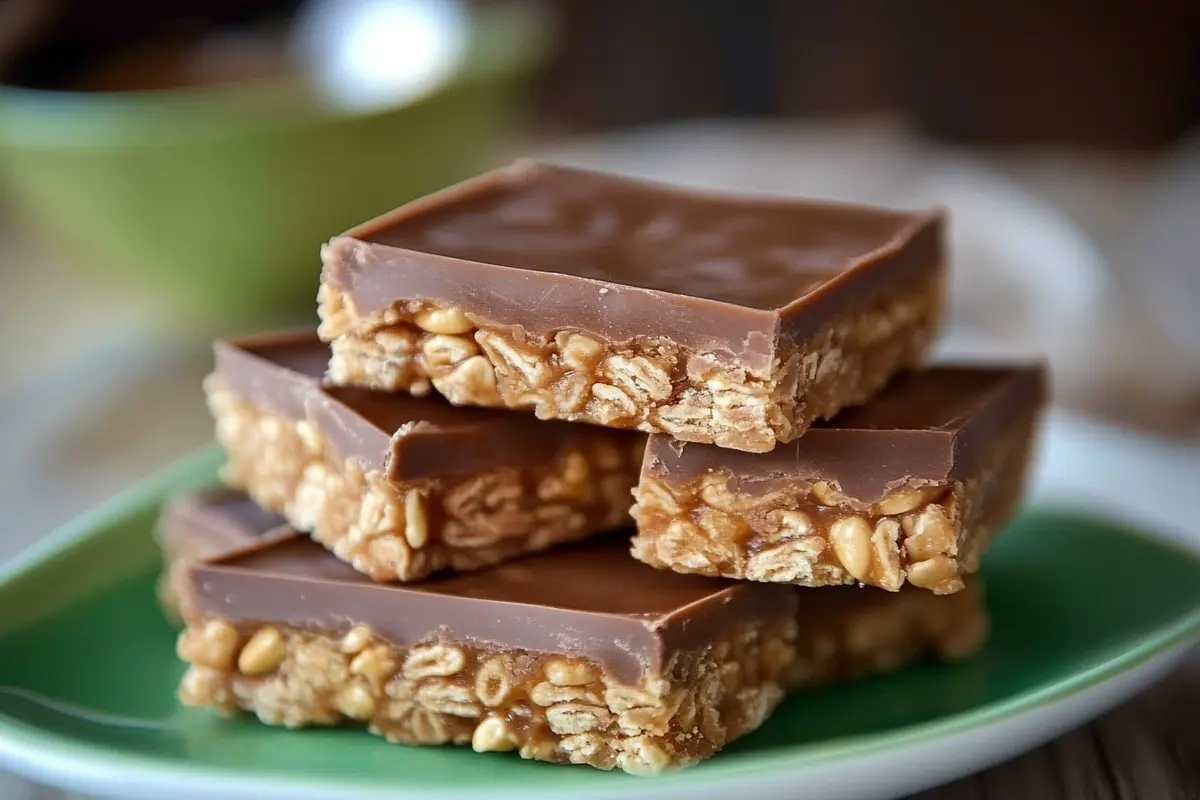When it comes to convenient snacks, protein bars often top the list for fitness enthusiasts and busy individuals alike. Among these, Special K protein bars stand out due to their association with Kellogg’s, a brand long known for its health-conscious products. But the pressing question remains: Are Special K protein bars healthy?
This article explores the nutritional content, benefits, drawbacks, and practical applications of these bars. We’ll break down whether they’re a truly nutritious choice or just another cleverly marketed snack. Let’s dive in!
Introduction to Special K Protein Bars
Why Discuss Special K Protein Bars?
Special K protein bars have become a popular snack option for those seeking a quick bite or a post-workout boost. With their promise of high protein, low calories, and great taste, they seem like a perfect package. However, as we’ve learned from countless “healthy” snacks, not everything that glitters is gold. It’s important to dig deeper into what these bars bring to the table nutritionally and whether they align with your health goals.
What Does ‘Healthy’ Mean for Snack Bars?
When we call something “healthy,” what do we mean? Does it mean low calories, balanced macronutrients, or the absence of artificial additives? The definition varies depending on individual needs—whether it’s weight loss, muscle gain, or simply a desire to eat cleaner. By evaluating Special K protein bars against these criteria, we can uncover whether they live up to the label of being a healthy snack option.
Special K protein bars might fit the bill for convenience, but do they truly nourish your body? Stay tuned as we explore the details in the following sections!
Nutritional Overview of Special K Protein Bars
Calorie Content and Macronutrients
When assessing Are Special K protein bars healthy?, the first stop is their macronutrient profile. Each bar typically contains around 180–190 calories, 12 grams of protein, and about 9 grams of fat. This balance makes them an appealing option for those seeking a quick energy source without overloading on calories. However, the protein content, while decent, may fall short for serious athletes or those with high protein needs.
For those counting carbs, Special K protein bars offer 23–25 grams per serving, including sugars. While this might seem moderate, it’s crucial to factor in sugar content, as it directly impacts energy spikes and crashes.
Vitamins, Fiber, and Sugar Levels
A closer look at the ingredients reveals a mix of synthetic vitamins and minerals to enhance nutritional appeal. Unfortunately, fiber content in most Special K protein bars is relatively low—hovering around 2–3 grams—leaving much to be desired for those aiming to support gut health.
Sugar levels are another red flag. With 7–12 grams of sugar per bar, depending on the variant, these snacks lean toward the sweeter side. Excessive sugar consumption can hinder weight loss and may lead to energy crashes, undermining the bar’s health claims.
Comparing with Competitor Protein Bars
Compared to rivals like RXBars or Quest Bars, Special K protein bars often feature lower protein and fiber but higher sugar. They may taste better due to this higher sugar content, but nutritionally, they’re less competitive. That said, they strike a balance between affordability and flavor, which makes them accessible for casual snackers.
Health Benefits of Special K Protein Bars

Protein Content for Muscle Building and Recovery
The standout feature of Special K protein bars is their protein content, which plays a vital role in muscle repair and maintenance. While 12 grams per bar may suffice for light snackers or those on moderate activity levels, those with intense workout regimes might need to pair it with additional protein sources.
The bars also contain whey and soy proteins—ingredients known for their fast absorption and effectiveness in muscle recovery. However, for those sensitive to soy, this might pose an issue.
Convenience for On-the-Go Nutrition
Special K protein bars shine when it comes to convenience. Whether you’re racing out the door in the morning or need a quick post-workout fix, these bars provide a portable and non-messy snack option. They’re especially handy during travel or as a light pre-gym boost.
Low-Calorie Options for Weight Management
One reason many turn to Special K bars is their low-calorie appeal. At under 200 calories per bar, they can serve as a strategic snack to curb hunger without derailing calorie goals. They also satisfy sweet cravings, reducing the likelihood of reaching for high-calorie desserts.
However, to answer the question Are Special K protein bars healthy?, it’s critical to weigh these benefits against their sugar content and lack of fiber. While great for quick energy, they may not sustain satiety as effectively as more fiber-rich options.
For deeper insights on nutritional values, you might explore related comparisons, such as Why Are My Special K Bars Hard in the Fridge?.
Potential Drawbacks of Special K Protein Bars
High Sugar and Artificial Ingredients
One of the main concerns when asking, Are Special K protein bars healthy?, is their sugar content. Many flavors contain between 7–12 grams of sugar per serving. While this makes the bars taste great, it could lead to energy crashes or cravings later in the day. Moreover, the use of artificial sweeteners and preservatives raises questions about their long-term health impacts.
Artificial ingredients, such as maltodextrin and palm oil, are commonly found in these bars. Although they enhance shelf life and texture, they don’t contribute much nutritionally. For health-conscious individuals, this could be a deal-breaker, especially when cleaner alternatives are available.
Low Fiber Content
Fiber is essential for digestion and sustained energy, but Special K protein bars fall short in this department, offering just 2–3 grams per bar. This low fiber content may leave you feeling hungry sooner, making the bars less ideal for those seeking long-lasting satiety.
Are They Truly Filling and Satisfying?
Another drawback is that these bars may not be as filling as you’d expect. The combination of low fiber and moderate protein might leave you craving more food shortly after eating. This limits their effectiveness as a standalone snack or meal replacement for active individuals.
While Special K protein bars can be a convenient choice, their nutritional profile makes them less suitable for those prioritizing clean eating or long-lasting energy.
Comparing Flavors and Variants
Chocolate Peanut Butter vs. Strawberry
When exploring flavors, Chocolate Peanut Butter and Strawberry emerge as fan favorites. The former offers a rich, dessert-like taste, appealing to those with a sweet tooth. On the other hand, Strawberry provides a lighter, fruity option that feels less indulgent but just as satisfying.
Nutritionally, both flavors are similar in calories and protein. However, the Chocolate Peanut Butter bar tends to have slightly higher sugar and fat content, which may impact its “healthy” appeal. Ultimately, your choice will depend on your taste preferences and dietary priorities.
Nutritional Differences Among Variants
Special K protein bars come in a variety of flavors, from Brownie Batter to Salted Caramel. While the protein content remains consistent, sugar levels can vary significantly. It’s essential to read labels carefully to ensure the variant you choose aligns with your goals.
Additionally, some flavors may include allergens like nuts or soy, so always double-check the ingredients if you have dietary restrictions.
Taste Profiles and Consumer Feedback
Consumer reviews often highlight the bars’ palatable taste as a strong selling point. Many enjoy their candy-like flavor, making them an easy alternative to sugary snacks. However, some critics argue that the bars are overly sweet, which might not suit everyone’s palate.
For those who love experimenting with flavors, Zina’s website offers a guide to creating homemade snacks that can help you replicate these delicious tastes at home.
Whether you’re a fan of chocolate, fruity flavors, or something in between, Special K protein bars offer a variety of choices. But as always, it’s wise to consider their nutritional trade-offs before indulging.
Special K Bars in a Balanced Diet
When and How to Incorporate Protein Bars
Protein bars like Special K can play a role in a balanced diet, especially when convenience is key. They’re great for post-workout recovery or as an emergency snack during a busy day. However, relying on them too much can lead to an imbalanced intake of nutrients. For example, using them as a meal replacement without adding fruits or vegetables might leave your diet lacking in essential fiber and vitamins.
To truly balance your diet, pair a Special K protein bar with a piece of fruit or a handful of nuts. This combination can help stabilize blood sugar levels and keep you full for longer.
Pairing with Other Nutritional Foods
While these bars are a good source of quick protein, they don’t provide everything your body needs. Adding a yogurt or a smoothie can round out your snack, offering a mix of protein, healthy fats, and carbs. This approach supports satiety and keeps energy levels stable throughout the day.
Using Protein Bars for Specific Goals (e.g., Weight Loss or Maintenance)
When asking, Are Special K protein bars healthy?, the answer often depends on your goals. For weight loss, they can be a helpful tool to satisfy sweet cravings without exceeding calorie targets. For maintenance, they offer an easy way to hit daily protein goals while enjoying a treat-like snack.
Expert Opinions and Consumer Reviews
Dietitian Insights on Protein Bars
Many dietitians agree that protein bars like Special K can fit into a healthy lifestyle when eaten in moderation. However, they caution against relying on them too heavily. The relatively high sugar content and low fiber might not provide the same benefits as whole, unprocessed foods.
Instead, experts suggest using them as a supplementary snack rather than a dietary staple. For those seeking weight management, pairing a Special K bar with a lower-sugar alternative or a fiber-rich side dish can enhance its nutritional value.
What Are Consumers Saying About Special K?
Consumer feedback often highlights the bars’ taste and convenience as top advantages. Many people enjoy their portability and candy-like flavor, making them an easy grab-and-go snack. However, some reviews note dissatisfaction with the sugar levels, pointing out that they don’t always provide long-lasting energy.
Real-Life Case Studies: Weight Loss and Fitness Stories
Anecdotal stories often reveal that Special K protein bars are helpful for those trying to manage weight or maintain fitness. Some users have successfully used them to curb cravings and stick to calorie goals, while others appreciate their quick energy boost during workouts.
While they’re convenient, keep in mind that their nutritional profile might not suit every dietary plan. Exploring additional snack options, like whole foods or homemade bars, ensures a more balanced approach to nutrition.
Conclusion

So, are Special K protein bars healthy? The answer largely depends on your dietary goals and lifestyle. These bars offer convenience, a decent protein boost, and satisfy sweet cravings, making them a practical option for quick snacking or post-workout energy. However, their high sugar content, low fiber, and use of artificial ingredients may not align with stricter nutritional preferences.
For occasional use, Special K protein bars can fit into a balanced diet, especially when paired with whole foods like fruits or yogurt. However, relying on them as a primary snack or meal replacement might not provide the sustained energy and nutrients your body needs.
Ultimately, like with any processed snack, moderation is key. If you’re looking for healthier alternatives, consider homemade protein bars or other nutrient-rich snacks. As always, the best approach is to listen to your body and prioritize foods that fuel you with wholesome, natural ingredients.
FAQs: Special K Protein Bars
Is Special K protein good for you?
Special K protein bars can be a convenient source of protein, especially for those needing a quick snack or post-workout fuel. They provide around 12 grams of protein and under 200 calories per bar. However, their high sugar content (7–12 grams per bar) and the use of artificial additives may make them less suitable for individuals seeking cleaner, whole-food options. For balanced nutrition, they are best consumed in moderation.
Is it safe to eat protein bars every day?
Eating protein bars daily can be safe if they complement a balanced diet. However, relying too much on bars, like Special K, might lead to nutrient imbalances due to their relatively low fiber and high sugar content. Experts recommend using protein bars as occasional supplements to your diet rather than primary meal replacements. Incorporating a variety of whole foods ensures you get essential vitamins, minerals, and fiber.
How many calories are in a Special K protein bar?
A typical Special K protein bar contains between 180–190 calories, depending on the flavor. These bars are designed to provide quick energy and protein in a portion-controlled package, making them suitable for on-the-go snacking or as a light meal supplement.
What are Special K bars made of?
Special K protein bars include ingredients like whey and soy protein, maltodextrin, sugar, palm oil, and various synthetic vitamins and minerals. They also contain natural and artificial flavors, and depending on the flavor, may include ingredients like chocolate chips, nuts, or fruit concentrates. While these ingredients help with taste and shelf life, they also include processed components that some health-conscious individuals may choose to limit. Always check the ingredient label to ensure it aligns with your dietary preferences.

